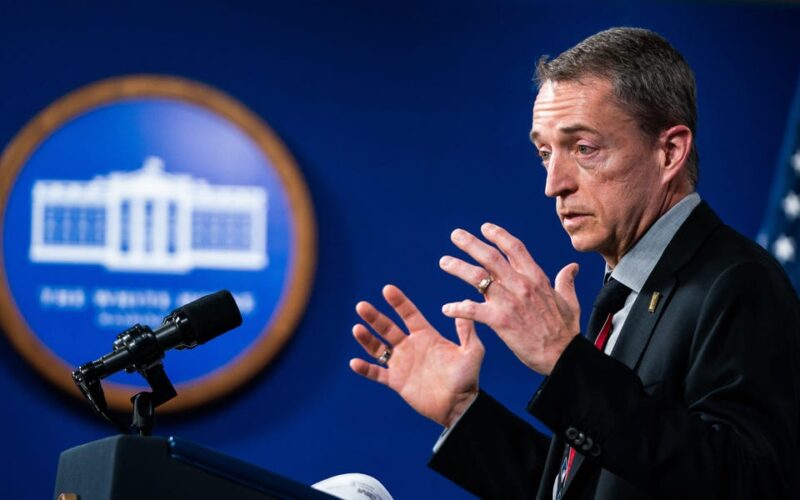- Donald Trump’s big election win has big implications for Intel.
- Trump’s policies favor domestic US manufacturing.
- He’s also expressed opposition to the CHIPS Act, which Intel is counting on.
Donald Trump‘s decisive election win has major implications for America’s ailing chip giant Intel.
Once the world’s leading chipmaker, Intel is now losing billions of dollars while frantically cutting costs and searching for a new path forward.
Trump’s embrace of tariffs, and his distaste for the CHIPS and Science Act, could upend the company’s plan to regain relevance — in potentially good and bad ways.
Trump favors US manufacturing
Intel shares jumped more than 7% on Wednesday to the highest level since early August.
Trump is a vocal supporter of US manufacturing, and Intel could benefit from this. The company is still the largest chipmaker in the US, with several huge semiconductor factories in the country. If there’s more pressure to produce semiconductors domestically, that might send more orders Intel’s way.
One of Intel’s current recovery strategies is to build up its foundry business, which makes chips for other companies. This division is in desperate need of new customers. Any Trump-inspired boost here would likely be welcome.
“As the only American company that designs and manufactures leading-edge chips, Intel has a critically important role to play, and we look forward to working with the Trump Administration on this shared priority,” an Intel spokesperson told BI on Wednesday.
Trump doesn’t like the Chips Act
It’s not all good news, though. Trump has been a vocal opponent of the Biden administration’s CHIPS and Science Act and Intel insiders have noticed.
In the days before the election, Intel CEO Pat Gelsinger fielded internal questions about this. With a Trump win, could the company miss out on a potential $8.5 billion in financial support from this legislation?
Gelsinger told a company all-hands meeting that the law was passed with bipartisan support.
However, Intel has yet to receive any funds from the CHIPS Act, and Gelsinger told Bloomberg TV recently that the money is coming “too slow,” especially since Intel has invested $30 billion in new manufacturing capabilities.
Intel’s spokesperson told BI the company will continue to work with the Biden administration to finalize payouts from the CHIPS Act.
“The Commerce Department has publicly said that it wants to complete this process by the end of the year, and we will keep doing our part to restore US semiconductor manufacturing leadership,” the spokesperson said.
Trump loves tariffs
Trumps preferred tool to boost US manufacturing is more controversial. Tariffs on imports, especially from China, were a hallmark of his first presidency. The Biden administration continued this strategy, but an emboldened Trump could take this to the next level in coming years.
“This country can become rich with the use, the proper use of tariffs,” Trump told podcaster Joe Rogan recently.
The semiconductor industry is global, so any tariffs that limit the free flow of materials and components through the tech supply chain is a potential problem. Though most high-tech chips are made in Taiwan, they require materials from all over the world and could be affected by tariffs depending on what Trump decides to target.
Tech analyst Ben Thompson wrote on Wednesday that stimulating demand for Intel products is a more compelling strategy, adding that tariffs could create a price gap between US-made and foreign-made chips.
“The problem is that I don’t think this would be enough to help Intel (chips are too high-risk and too low-cost to change suppliers), but it might be enough to force TSMC to put leading edge fabs on American soil,” he wrote, referring to the Taiwan-based chipmaking giant.
Trump has strong views on Taiwan
The potential threat hanging over Taiwan from China adds to the precarious state of the chip industry. That’s because most big tech companies, including Apple, rely on TSMC to make the chips they design. Trump sees this dynamic as problematic.
“Taiwan, they stole our chip business,” he told Rogan in the same podcast interview.
TSMC is the only company that can reliably make the most cutting-edge chips at scale. Intel has struggled to successfully manufacture these advanced chips or even the smaller components they require.
Source link
lol

